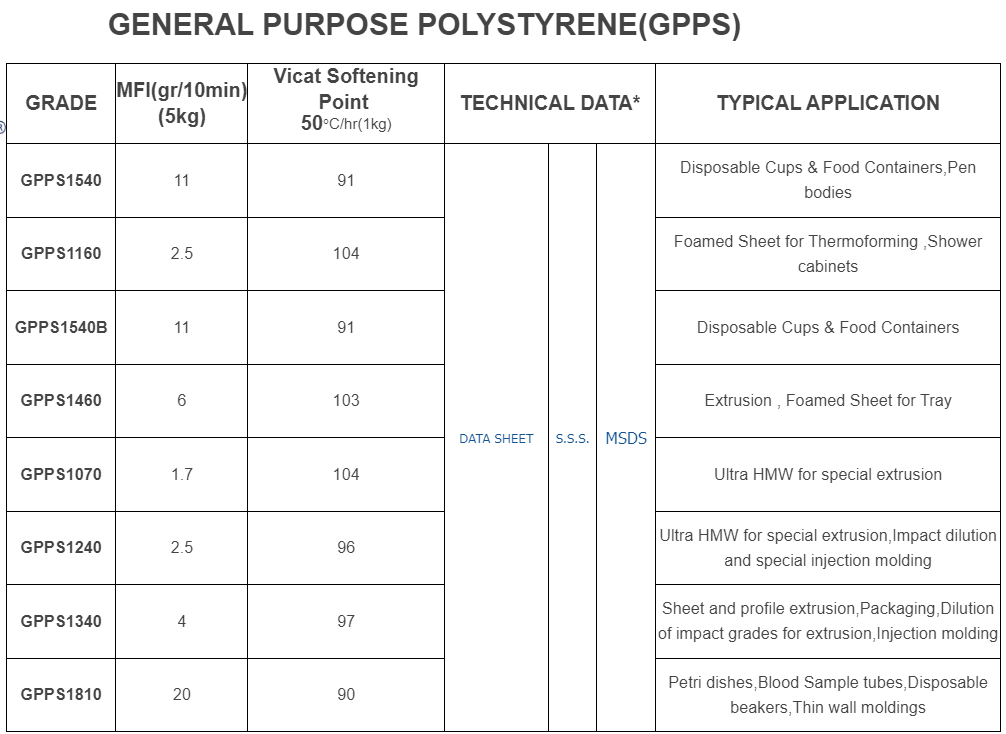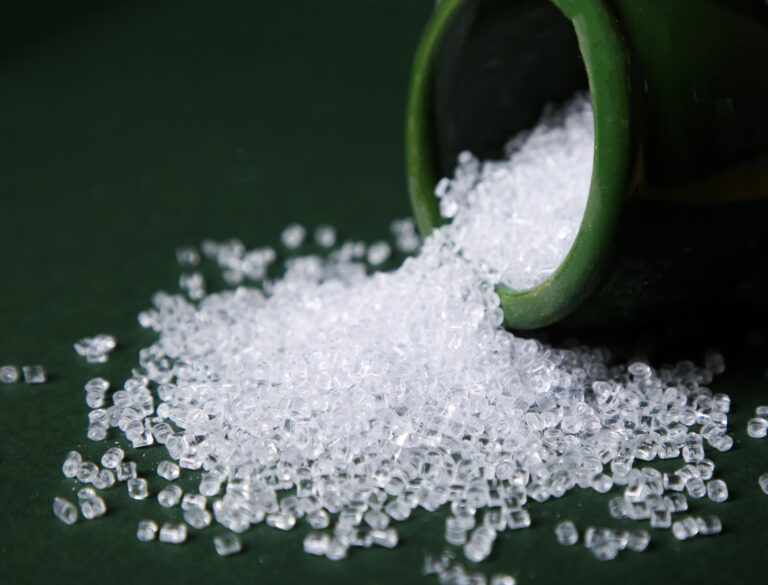What do you know about Properties of General Purpose Polystyrene? Today, polystyrene polymer is one of the most widely used polymers in the world after polyethylene. The main advantage of this product, in addition to high transparency, is that it can be easily converted into efficient products by molding. One of the most widely used grades of this material, which is used for general purposes, is General Purpose Polystyrene (GPPS), which is also known as Crystal. Properties of natural polystyrene such as heat resistance, operating temperature, flow and fluidity properties, dielectric and strength properties, and impact resistance of general purpose polystyrene product (GPPS) are optimized. It is widely used to make disposable tableware, electronics such as televisions and radios, sports equipment, toys, and household appliances.
Advantages of general purpose polystyrene (GPPS)
Advantages of general purpose polystyrene (GPPS) include transparency, high rigidity, good dimensional stability, good electrical properties, gamma-ray resistance, and low price. In addition to these advantages, this product also has disadvantages and limitations.
The most important disadvantages are fragility at ambient temperature, poor mechanical properties at temperatures above 70 ° C, high flammability, poor chemical resistance, especially against organic solvents, and sensitivity to ultraviolet radiation.
In the continuation of this article, we will get acquainted with the types of physical, mechanical, thermal, electrical, and chemical properties of general purpose polystyrene (GPPS).
Physical properties of general purpose polystyrene (GPPS)
General purpose polystyrene (GPPS) or crystal is polystyrene with an amorphous and irregular structure that has a shiny glassy appearance. In general, van der Waals bonds (intermolecular forces) play a major role in determining the physical properties of a substance; Therefore, the physical properties of general purpose polystyrene (GPPS) are derived from weak van der Waals bonds between the chains of this polymer.
As the temperature rises, the van der Waals bonds become weaker, causing the molecular chains that make up the material to slide over each other. For this reason, general purpose polystyrene (GPPS) will be very elastic and soft at temperatures higher than the transfer temperature of its glass.


